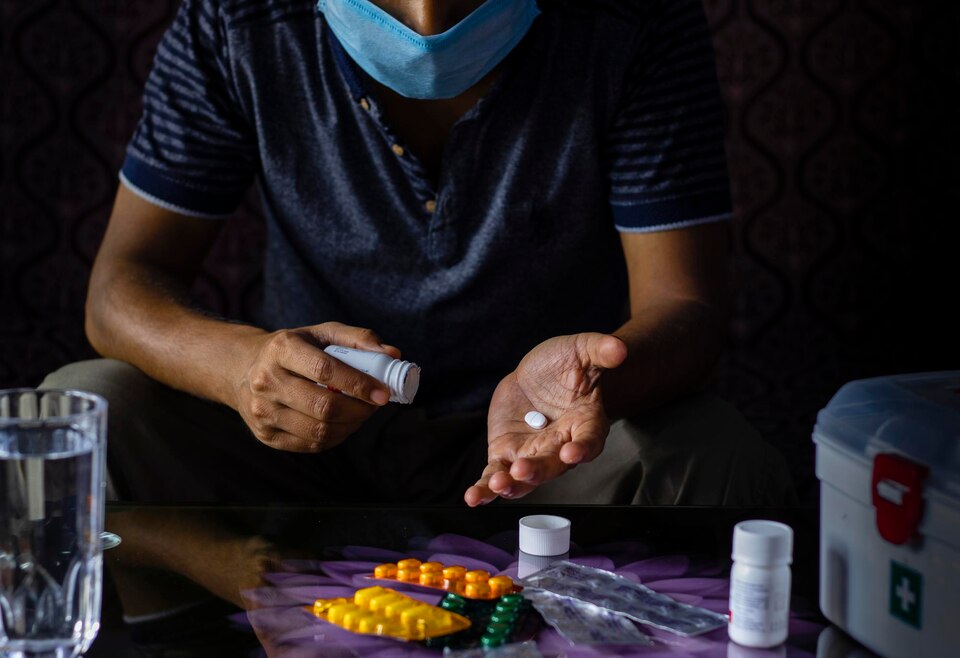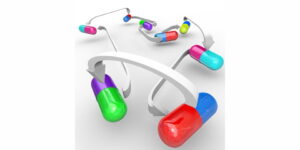Last updated on April 18th, 2025 at 06:09 pm
 A deadly drug interaction occurs when two or more substances, such as medications, supplements, or even certain foods, interact in a way that results in severe or life-threatening consequences. These interactions can lead to unexpected side effects, diminished effectiveness of one or both substances or the creation of harmful compounds within the body.
A deadly drug interaction occurs when two or more substances, such as medications, supplements, or even certain foods, interact in a way that results in severe or life-threatening consequences. These interactions can lead to unexpected side effects, diminished effectiveness of one or both substances or the creation of harmful compounds within the body.
It’s essential to be aware of these interactions to prevent serious health risks. Preventing deadly drug interactions is crucial to ensure your health and well-being. Mixing certain medications or combining medications with certain foods, beverages, or supplements can lead to serious consequences.
Best Ways to Control a Deadly Drug Interaction
Here are the best 9 ways to prevent a deadly drug interaction:
1. Communication with Healthcare Providers
Always keep your healthcare providers informed about all the medications you’re taking, including prescription drugs, over-the-counter medications, herbal supplements, and vitamins. This helps them identify potential interactions and adjust their treatment plan accordingly.
2. Pharmacist Consultation
Consult your pharmacist when picking up new medications. They can provide valuable information about potential interactions and offer guidance on how to take your medications safely.
3. Maintain a Medication List
Keep an up-to-date list of all your medications, including dosage, frequency, and any special instructions. Share this list with your doctors, pharmacists, and caregivers.
4. Research Interactions
Use reputable sources or consult with healthcare professionals to research potential interactions between your medications. Be cautious of websites or sources that lack credibility.
5. Read Labels and Instructions
Carefully read the labels and instructions for all medications and supplements. Pay attention to warnings about potential interactions with other drugs, alcohol, or specific foods.
6. Avoid Alcohol and Grapefruit Juice
Alcohol can intensify the effects of certain medications and increase the risk of side effects. Grapefruit and grapefruit juice can interfere with the metabolism of many drugs, leading to potentially dangerous levels in your bloodstream.
7. Be Cautious with Herbal Supplements
Herbal supplements can interact with medications. Always inform your healthcare provider about any herbal supplements you’re taking to ensure there are no adverse interactions.
8. Separate Timing of Medications
Some medications need to be taken on an empty stomach, while others should be taken with food. Follow the instructions provided by your healthcare provider to avoid interactions caused by the timing of your medications.
9. Educate Yourself
Take the time to learn about the medications you’re prescribed. Understand their potential side effects, interactions, and contraindications. This empowers you to make informed decisions and ask relevant questions during medical appointments. Remember, preventing deadly drug interactions requires vigilance and an open line of communication with your healthcare team.
If you ever suspect that you’re experiencing an adverse reaction due to a medication interaction, seek medical attention immediately. Your health and security should always be the top priority.

> Consult a doctor and Order Medicine Online
Deadly Drug Interactions in Emergency Medicine
Emergency medicine presents unique challenges and requires swift and precise action to ensure patient safety and positive outcomes. Emergency medical professionals are often faced with time-sensitive decisions, and their knowledge of potential drug interactions can be critical in preventing harm. To mitigate deadly drug interactions in emergency medicine:
- Prioritize Patient Assessment: Rapidly assess the patient’s medical history, including medications, allergies, and conditions, if possible.
- Use Clinical Resources: Utilize drug interaction databases, clinical guidelines, and decision support tools to quickly identify potential interactions.
- Consult Pharmacists: Involve pharmacists in the decision-making process, especially when dealing with complex cases or unfamiliar medications.
- Monitor Closely: Regularly monitor the patient’s vital signs and response to treatment. Be prepared to adjust treatment plans if unexpected reactions occur.
- Documentation: Thoroughly document all medications administered, including dosages, routes, and times. This record helps prevent duplication or unnecessary interactions.
- Patient Education: Whenever possible, provide patients with information about the medications they’ve received, potential interactions, and what to watch for in terms of side effects.
In the high-stress environment of emergency medicine, preventing it requires a combination of quick thinking, effective communication, and a solid foundation of medical knowledge. By fostering open dialogues between patients, healthcare providers, and pharmacists, potential risks can be unearthed and mitigated.
Also Read: What is Generic Medicine?
Equally crucial is the role of technology, offering valuable insights and real-time support. As we navigate a world of ever-evolving medical advancements, the commitment to preventing deadly drug interactions remains unwavering, ensuring that patient safety and well-being remain at the forefront of medical practice.
FAQs on Prevent a Deadly Drug Interaction
Q1: How can I prevent deadly drug interactions?
To prevent deadly drug interactions, maintain an up-to-date list of all medications, including prescription drugs, supplements, and over-the-counter medications. Regularly communicate with your healthcare provider and pharmacist about your medication regimen. Avoid mixing alcohol with drugs and be cautious with herbal supplements.
Q2: Can over-the-counter medications cause deadly interactions?
Yes, over-the-counter medications can interact with other medications or medical conditions, leading to harmful effects. It’s important to inform your healthcare provider about all medications you’re taking, including over-the-counter ones. Some seemingly harmless OTC drugs can interact with prescription medications, exacerbating risks. Always read labels and consult with a pharmacist or healthcare professional if you’re unsure about potential interactions.
Related Links: